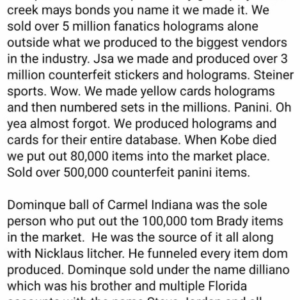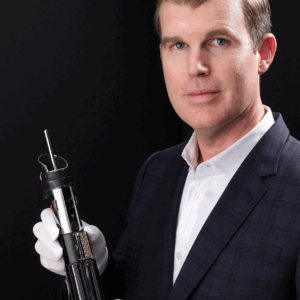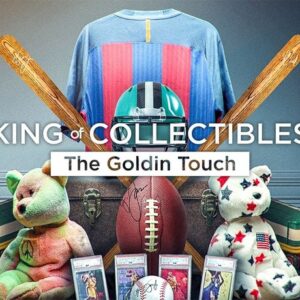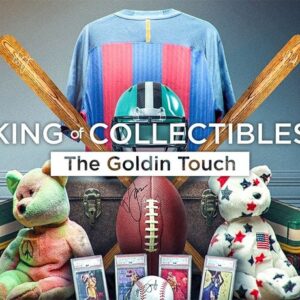It should have been another glorious day in the hallowed halls of sports memorabilia collecting, but the universe had other plans. Instead, the industry found itself entangled in an intricate web of deception, expertly crafted by a seemingly innocuous autograph dealer from Indiana. To say the scene in Westfield this week was reminiscent of a Hollywood crime drama would not be an exaggeration. The main character? Brett Lemieux, a familiar face within the tight-knit community, now posthumously footnoted as the villain in one of the most audacious counterfeit operations ever uncovered.
In what already sounds like the plot twist from an episode of a true crime series, Lemieux, aged 45, was discovered lifeless from a self-inflicted gunshot wound amid a police raid. Officers were executing a warrant related to his alleged involvement in a mammoth fake memorabilia syndicate, and they stumbled upon a scenario that scandalized collectors around the globe.
Rumblings of tumult began reverberating when a purported confession penned by Lemieux emerged in the confines of the “Autographs 101” Facebook enclave. In a post that could be likened to throwing a Molotov cocktail into a quaint cottage gathering, he divulged the existence of a counterfeit enterprise he orchestrated, news that sullied the very essence of nearly four million pieces, suspected of generating a staggering $350 million in fraudulent sales.
Market insiders are no strangers to turbulence, but Lemieux’s alleged admission acted as a figurative earthquake, leaving aftershocks in its wake that touched every corner of the autograph community. These revelations sparked pandemonium and incredulity, leading to a glut of introspection among collectors suddenly unsure of the authenticity of their cherished items.
This rogue operator marketed his sinister endeavors under the brand name Mister Mancave, a moniker boasting of an unmatched collection of framed jerseys online. Although cloaked in an Ohio address, a trail of tangible evidence led consistently back to Indiana, where Mister Mancave materialized not once, but twice, as a registered entity between 2018 and 2023.
Lemieux’s alleged confession reads like an exposé, as if channeling a twisted genius with an affinity for vintage detective fiction. Tales of forging hologram stickers, the kind employed by renowned authentication firms such as Panini and Fanatics, sounded more like a cautionary fable rather than contemporary news. Following basketball icon Kobe Bryant’s tragic passing in 2020, Lemieux brazenly confessed to unleashing 80,000 pieces of counterfeit Bryant memorabilia complete with faux-authentic holograms, thereby seeding marketplaces with deception.
It wasn’t merely the bastion of basketball that fell under this intricate charade. His website, living in the digital ether, hawked items like a supposed Aaron Judge-signed baseball, flaunting a Fanatics hologram and undercutting genuine pricing substantially. Suspicion, disguised as enticing bargains, beguiled buyers seemingly oblivious to the machinations of glaringly crafted falsifications.
In the aftermath of this deceitful storm, industry captains now find themselves sitting amidst the debris of trust and credibility. Fanatics, a juggernaut in the veracity arena, has taken decisive countermeasures by revamping hologram technology completely to thwart counterfeit ambitions. They’re not alone; collaboration with law enforcement and fraud experts has become the norm, encompassing former FBI agents in the relentless pursuit of “memorabilian” justice.
While skepticism pervades regarding the gravity of the figures in Lemieux’s declamation — potential hyperbole or not, some dismiss the $350 million as poppycock — no one denies the multifaceted impact of this subterfuge. Commentaries from experienced eyes like autograph authority Steve Grad highlight a painful truism: in a world where autopens and meticulous forgery tactics blur the lines of authenticity, this episode’s repercussions are sure to reverberate long beyond its conclusion.
An air of inevitability hung over the allegations, with whispers of anomaly being identifiable among seasoned aficionados. His procurement of signatures from athletes long off the signing circuit raised eyebrows, with some veterans crediting intuition for their foresight. Conversely, figures like fellow dealer Dominique Ball and Wisconsin’s Nickolas Litscher, casualties of Lemieux’s alleged manifesto, have adamantly disavowed involvement, with Litscher seemingly gearing up for a legal joust to clear his name amid this melee.
Authorities now believe Lemieux orchestrated this tapestry of trickery under numerous guises, spreading his counterfeit wares through mantles such as Ultimate Sports and Signature Dog. As the forensic dawn breaks upon this imbroglio, both law enforcement and collectors ponder the ramifications, their trust having taken a hit comparable only to an underdog’s fall from grace in an epic sports tale.
Moreover, this mess, while mired in tragedy, serves as an unwelcome alarm for the broader sports collectibles arena, reminding us all that beneath the surface of glamor lurk unseen perils needing constant vigilance. Fraudulent undertakings evolve just as rapidly as the heroics once enshrined in trophies, jerseys, and balls, urging a collective push towards enduring vigilance against chicanery of the highest order.






